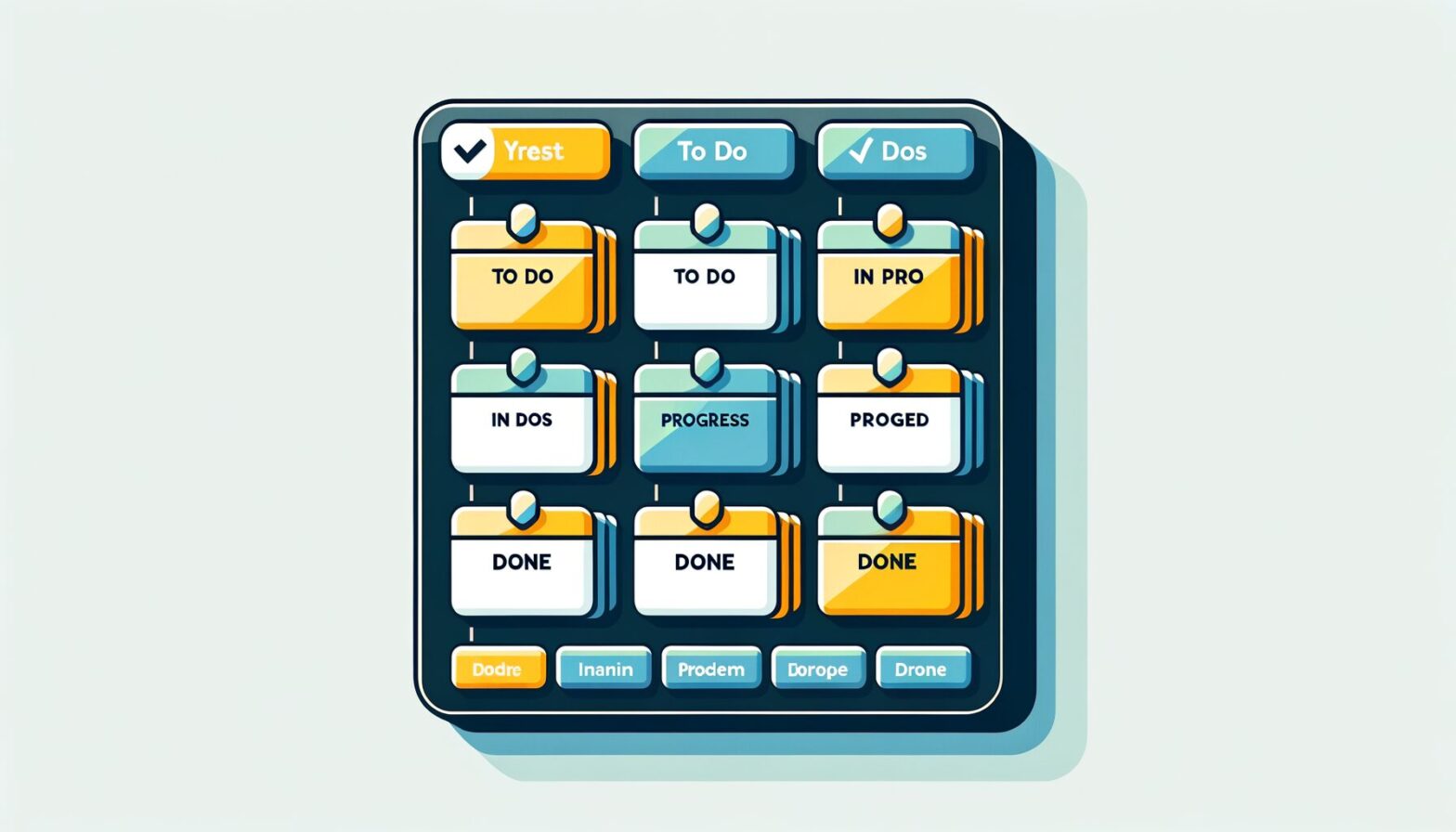The Rise of Online T-Cards: A Refreshing Alternative
In recent years, Agile and Kanban methodologies have dominated project management across various industries. Tools like Azure DevOps Boards have become almost synonymous with task tracking and sprint planning. Yet, despite their robust feature sets, many teams find themselves yearning for something more lightweight, flexible, and visually intuitive — enter online T-cards. Inspired by the traditional physical T-card system used on factory floors and construction sites, these digital versions offer simplicity without sacrificing effectiveness.
Unlike complex boards laden with numerous fields, states, and integrations, online T-cards mimic the tactile experience of moving cards around a board but with the convenience of digital access. They often allow users to create custom categories and workflows with minimal setup time, making them ideal for teams that want to start managing work immediately without a steep learning curve. The visual clarity these cards provide helps reduce cognitive load, enabling teams to focus on the work itself rather than the tool’s complexity.
Moreover, online T-cards typically integrate well with everyday communication tools like Slack or Microsoft Teams, ensuring that updates and notifications flow seamlessly into existing workflows. This contrasts with larger systems where users might have to switch contexts frequently or navigate through layers of menus to update task statuses. As a result, online T-cards are becoming a popular choice for small-to-medium enterprises and even larger organisations looking to decentralise project management and empower teams.
Real-World Success Stories: From Manufacturing to Software Development
One standout example comes from a mid-sized manufacturing company that struggled to keep track of maintenance requests and production tasks across multiple departments. They switched from a heavyweight Azure DevOps setup — primarily used for their software teams — to a simple online T-card system for their physical operations. Within weeks, plant supervisors reported a dramatic improvement in visibility and turnaround times because the cards were accessible on tablets scattered throughout the factory floor.
Similarly, a remote software consultancy embraced online T-cards to better manage client projects. While Azure DevOps was used internally for code repositories and CI/CD pipelines, the consultancy found that clients were often overwhelmed by the technical detail presented there. Online T-cards provided an intuitive interface where clients could see high-level progress, raise concerns, and prioritise features without digging through complex task boards.
These success stories highlight an important lesson: the right tool depends heavily on context and user needs. While Azure DevOps Boards excel at detailed software lifecycle management, online T-cards shine in environments where simplicity, accessibility, and cross-team collaboration are paramount.
Flexibility and User Experience: Why They Matter More Than Features
One of the core advantages of online T-cards lies in their exceptional flexibility. Unlike many enterprise-level project management systems that require rigid workflow definitions and extensive configuration, T-card platforms often offer drag-and-drop interfaces with minimal mandatory fields. This means teams can adapt boards quickly to suit changing priorities without requiring admin intervention.
User experience also plays a pivotal role. Tools that are perceived as overly complex or unintuitive discourage engagement, leading to out-of-date boards and missed deadlines. Online T-cards, by replicating a familiar physical process in a digital environment, lower barriers to adoption. New team members can grasp the system within minutes, fostering transparency and accountability from day one.
In addition, many online T-card solutions support offline modes or mobile-first designs. This enables field workers or remote employees to update tasks on the go — something large systems like Azure DevOps may struggle with unless carefully customised. Ultimately, the user-centric design philosophy behind online T-cards encourages continuous use, driving better data accuracy and improved project outcomes.
Conclusion: Choosing the Right Tool for Your Team’s Needs
While it’s tempting to equate feature richness with superiority, the best project management tool is the one that your team will actually use effectively. Online T-cards demonstrate that simplicity and visual clarity often trump complexity, especially for teams seeking agility and rapid onboarding.
Azure DevOps Boards undoubtedly have their place in intricate software development pipelines, providing deep integration with code repositories, testing tools, and deployment workflows. However, when collaboration spans multiple departments, or when non-technical stakeholders need quick insights without wading through technical jargon, online T-cards can bridge that gap beautifully.
Ultimately, combining these tools strategically — using Azure DevOps for detailed development tasks while leveraging online T-cards for broader visibility — may provide the best of both worlds. As more companies embrace hybrid workflows, understanding when and how to use these tools will become a critical success factor.
Interesting facts/statistics:
– According to a 2024 Agile survey, 38% of teams cited complexity as their biggest barrier to adopting formal project management tools.
– A study by Digital Workplace Group found that teams using lightweight card-based tools reported 22% higher user satisfaction than those using traditional task boards.
– 56% of manufacturing firms adopting digital T-card systems saw a measurable increase in operational efficiency within 3 months.
– Mobile usage for project management apps increased by 45% between 2022 and 2025, highlighting the need for mobile-friendly solutions.
Notes
- 38% of Agile teams cite complexity as the biggest barrier to tool adoption (2024 survey).
- Teams using lightweight card-based tools report 22% higher user satisfaction.
- 56% of manufacturing firms adopting digital T-card systems improved operational efficiency within 3 months.
- Mobile usage for project management apps increased by 45% from 2022 to 2025.
